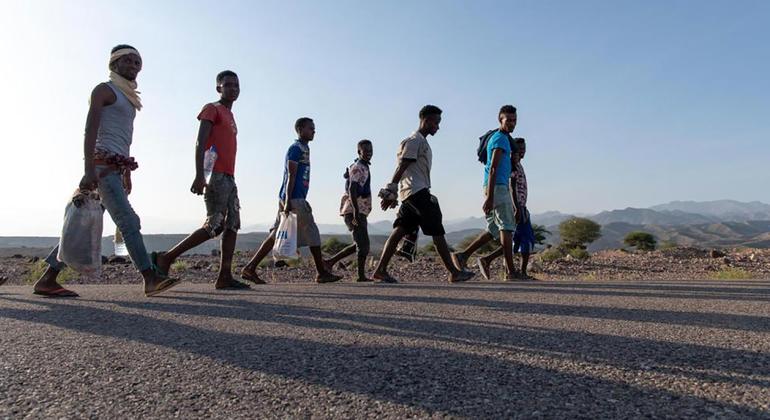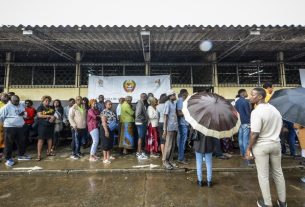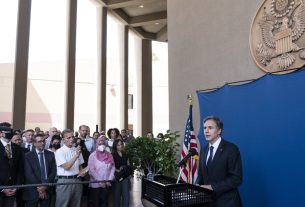“Migration is not just a statistic; it is the lived experience of women, men and children, each with unique identities and vulnerabilities – pursuing better lives and opportunities. But along their journeys, they face unimaginable violence, hardship and risk,” Amina J. Mohammed said, addressing an informal meeting of the General Assembly on the subject.
Last year was the deadliest on record for migrants. Nearly 8,600 deaths were documented along migration routes, pushing the total recorded since 2014 to almost 70,000 and many more remaining unaccounted for.
At the same time, xenophobia and anti-migrant sentiments are on the rise in societies, with women and girls at heightened risk of sexual and gender-based violence.
Transformative potential
“This is not only inhumane – it is counterproductive,” Ms. Mohammed said, stressing that failure to govern migration inclusively undermines societal equity and human rights, ultimately stalling sustainable development.
The Deputy Secretary-General underscored the transformative potential of migration, stating that when well-governed, it serves as a vital enabler of sustainable development, contributing to inclusive growth and social cohesion.
“The persistence of migrants in seeking a dignified life speaks to our universal drive for hope,” Ms. Mohammed said.
With close to half a million Venezuelan nationals, Ecuador hosts the third largest Venezuelan migrant population worldwide.
Roadmap for action
Referring to the Secretary-General’s implementation of the Global Compact for Safe, Orderly and Regular Migration (GCM), she urged Member States to intensify efforts to protect migrants and ensure justice.
These include strengthening search and rescue efforts on land and at sea, fostering international cooperation nations along migration routes, and supporting affected families with legal, administrative or economic assistance.
Alongside, justice, accountability and redress mechanisms must be strengthened to uphold migrants’ rights, and data and forecasting improved to enable more effective humanitarian responses.
“These recommendations are not abstract ideals – they are a practical roadmap for action,” Ms. Mohammed emphasised, urging Member States to commit to implementation ahead of the next International Migration Review Forum in 2026.
Alignment with Global Goals
Director-General of the UN International Organization for Migration (IOM) Amy Pope also addressed the General Assembly, stressing the interconnected nature of the Global Compact’s objectives, calling for a holistic approach that engages all stakeholders.
She also highlighted some key achievements, including a new voluntary framework.
“After extensive consultations with States and other stakeholders, we now have a new voluntary framework to support governments measure their progress, develop evidence-based policymaking and align their policies with [the 2030 Agenda for Sustainable Development],” she said.
The new voluntary framework, she added, would foster more accountability, as well as help integrate migration into national plans and innovative solutions for legal identity and safe pathways.
Ms. Pope urged Member States to adopt these indicators in their national GCM reviews and make actionable ideas a reality.



